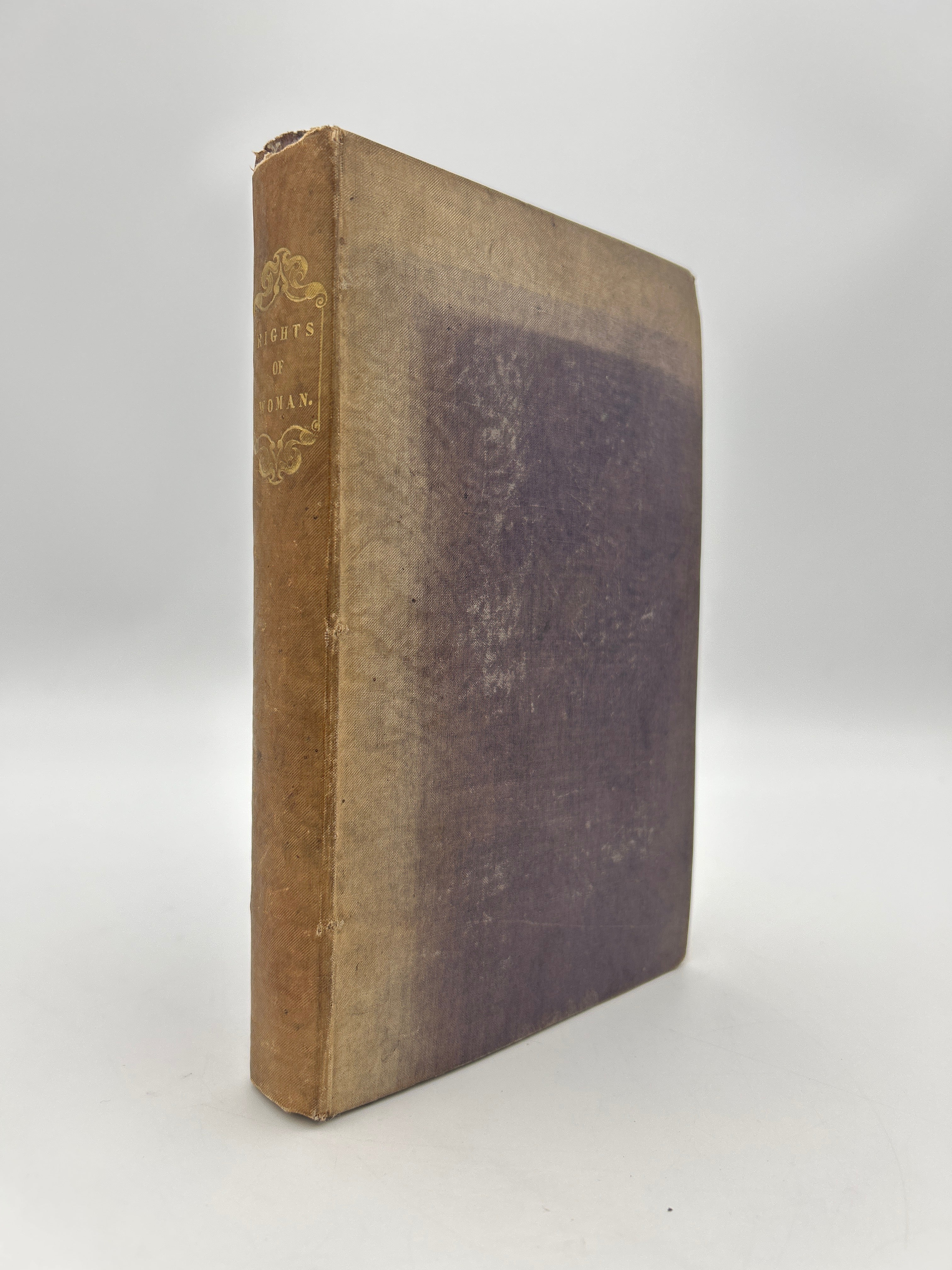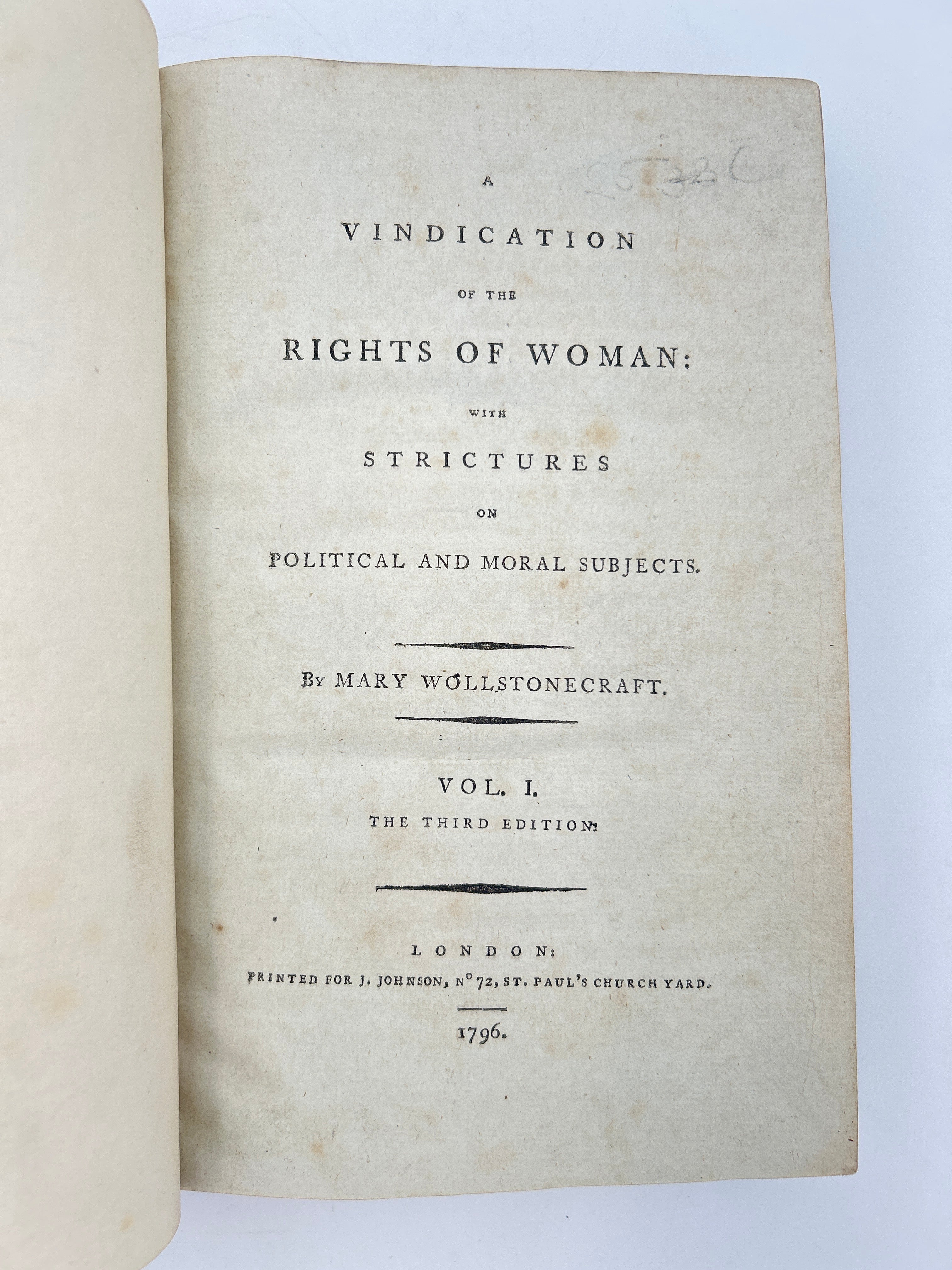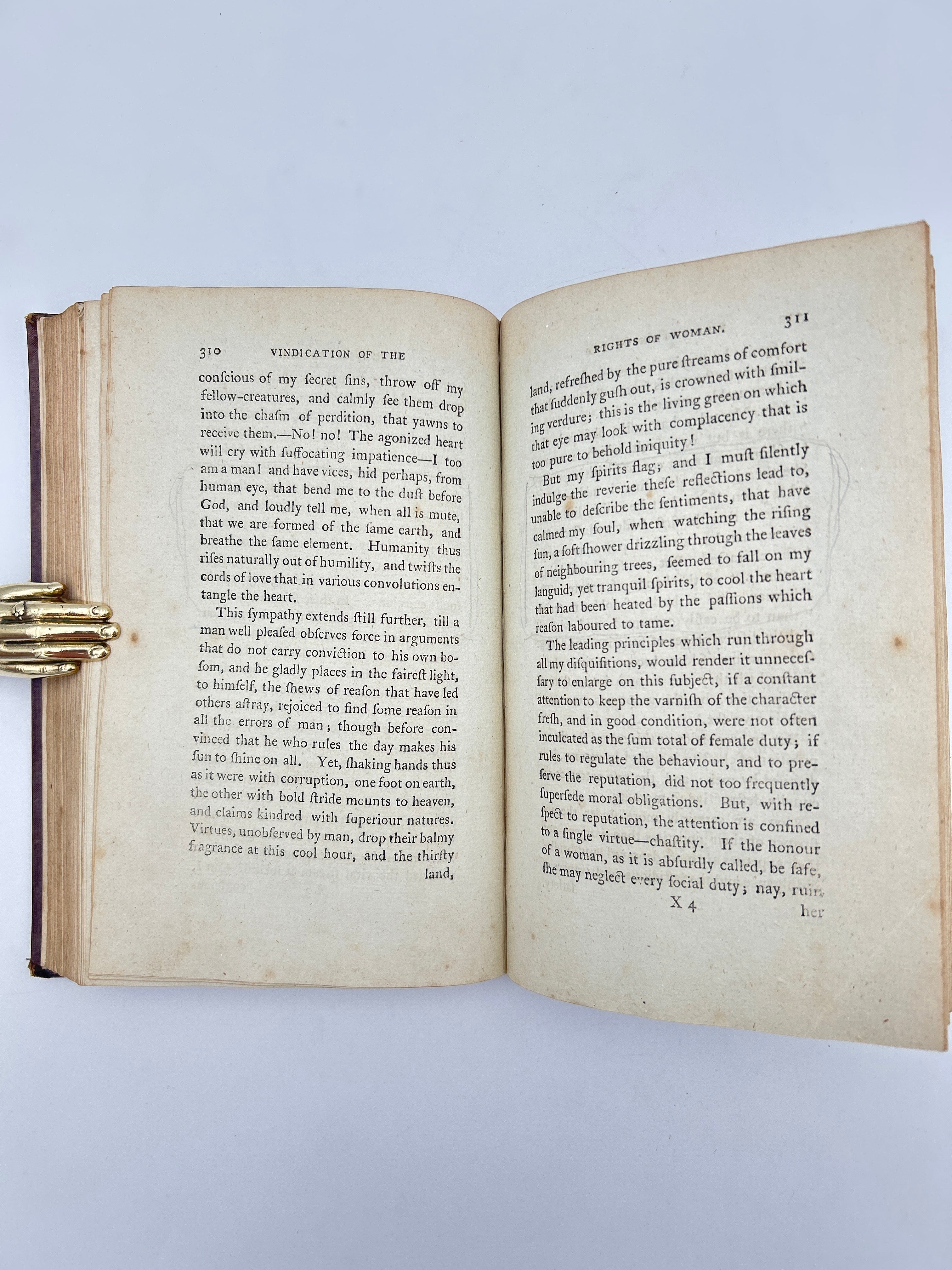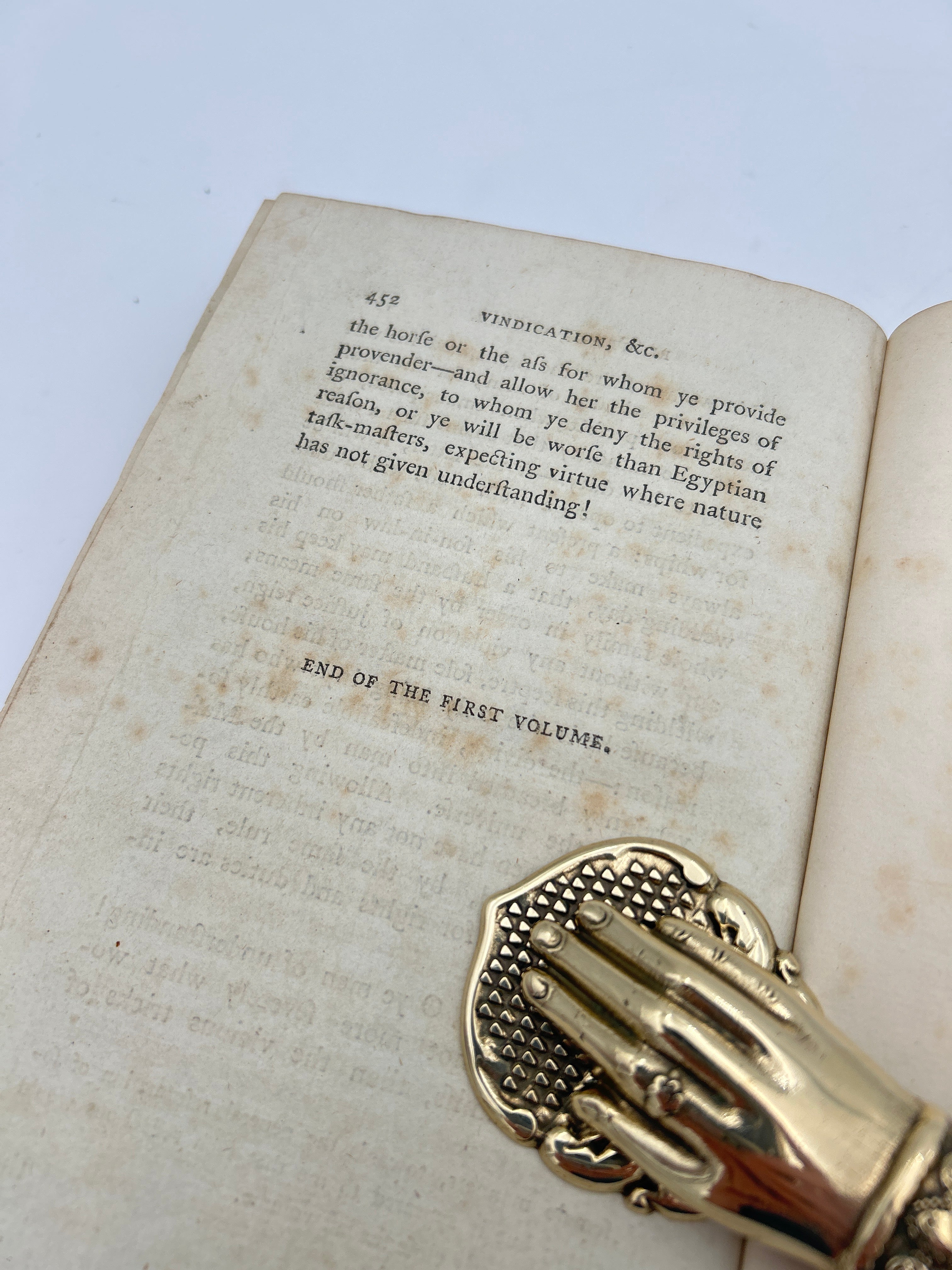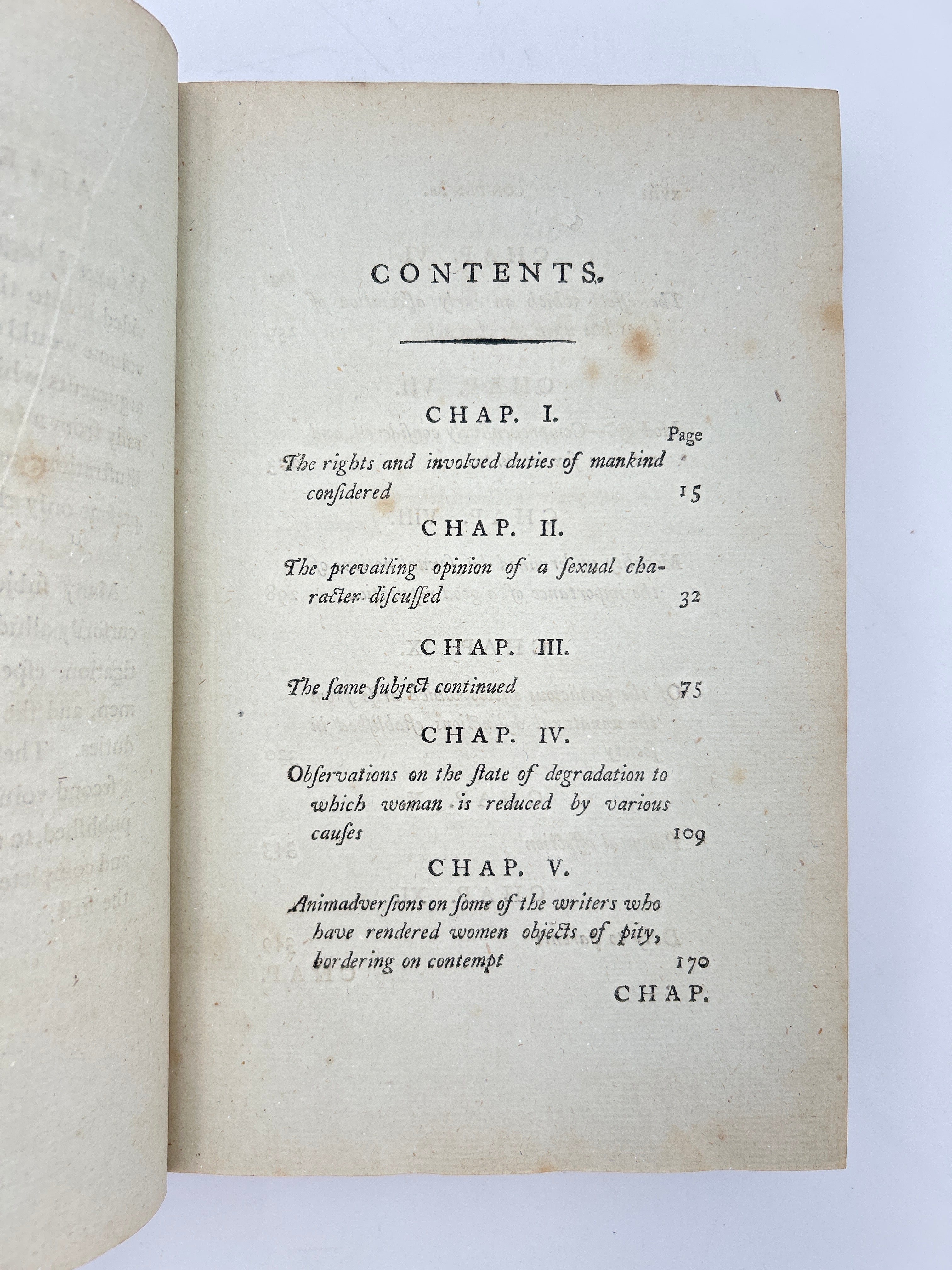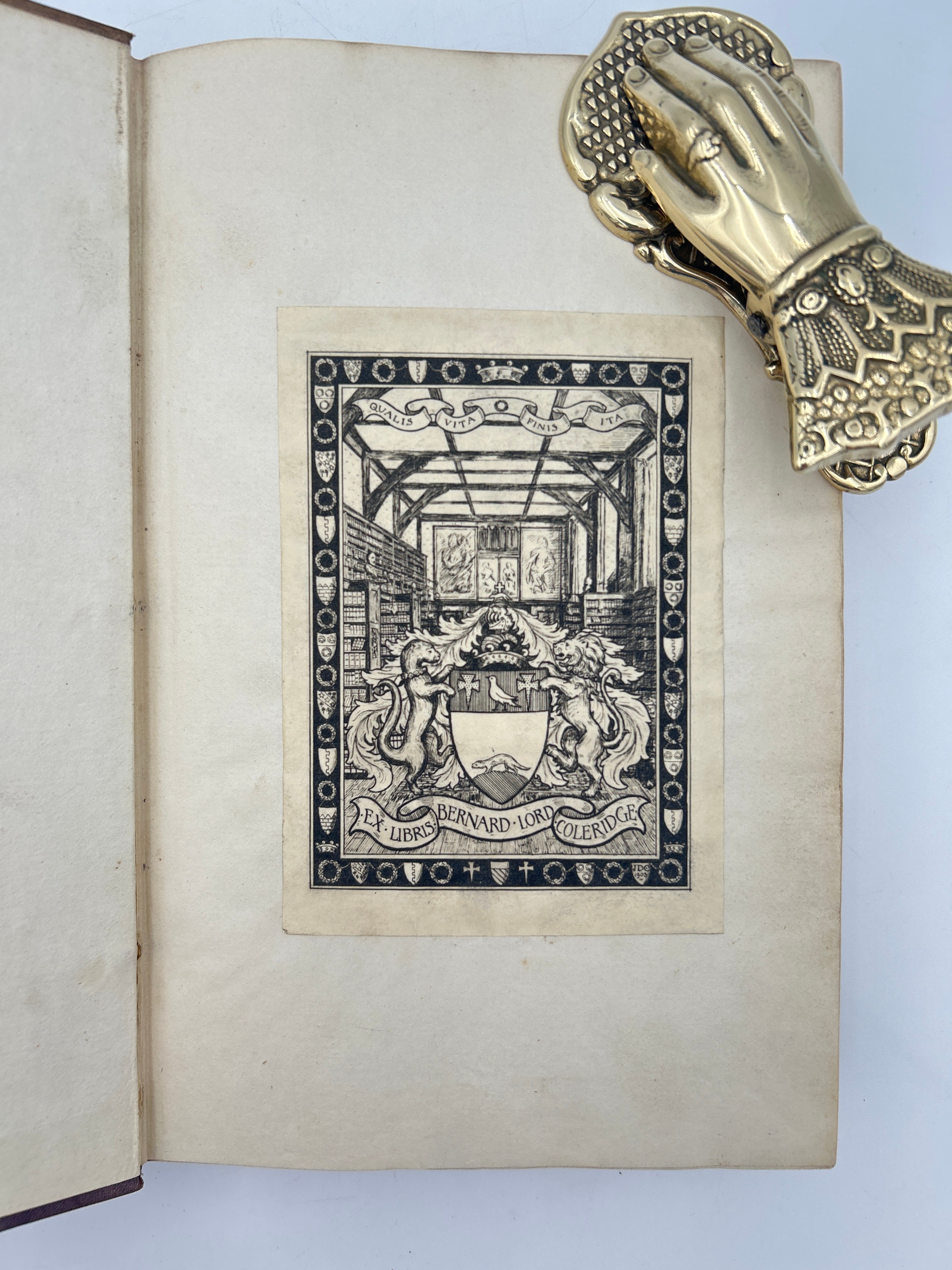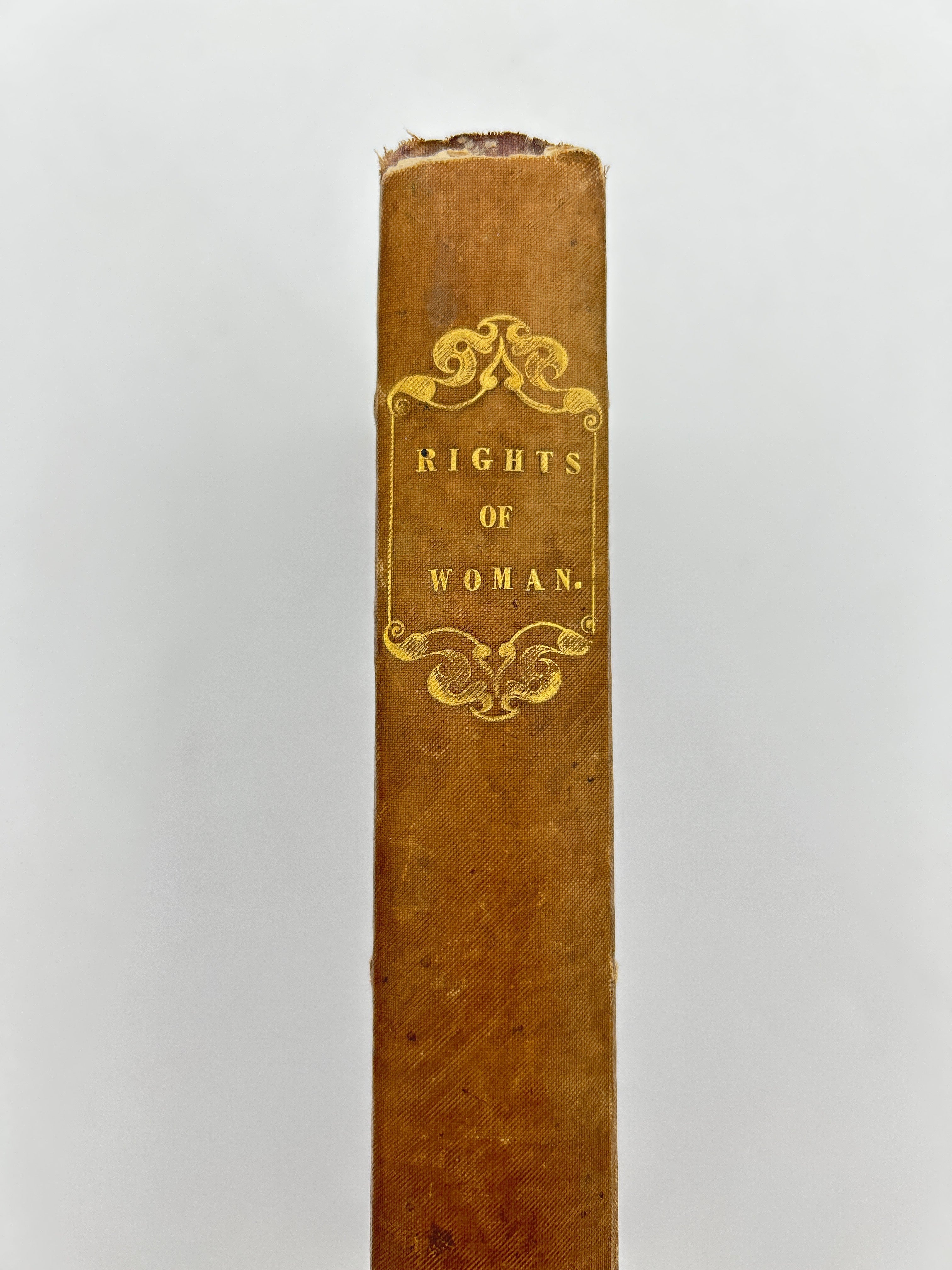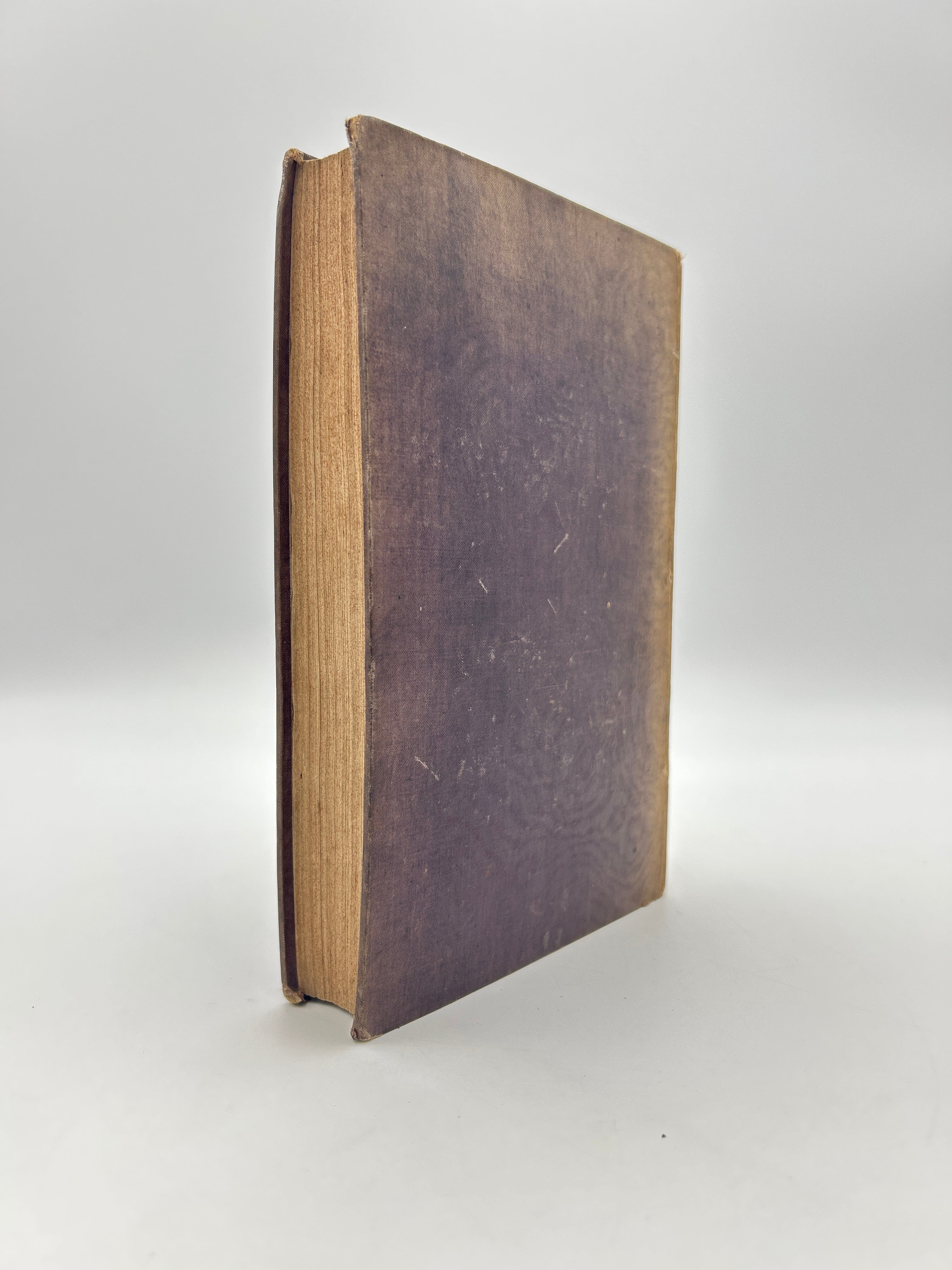A Vindication of the Rights of Woman
Couldn't load pickup availability
5b Mary Wollstonecraft. London, 1796. Third Edition
Notes
A Vindication of the Rights of Woman (1792) by Mary Wollstonecraft is one of the foundational texts of modern feminism. Written in response to Enlightenment thinkers who largely excluded women from their calls for equality, Wollstonecraft argued that women are not naturally inferior to men, but appear so only because they lack education. She demanded that women be given the same opportunities for intellectual and moral development as men, advocating for co-education, rational thinking, and the rejection of traditional female roles that emphasized beauty and obedience over reason and independence.
Historically, the work was groundbreaking. It challenged deeply rooted social norms in 18th-century Europe and laid the groundwork for future feminist movements. Although Vindication did not immediately change laws or widely shift public perception, it planted seeds that would later influence the women’s suffrage movement in the 19th century and the feminist waves of the 20th century. It is often cited as a precursor to both liberal and radical feminist thought. Her assertion that women are entitled to the same fundamental rights as men was revolutionary for its time.
The reception of A Vindication of the Rights of Woman was mixed. Some Enlightenment thinkers, including a few progressives, admired her intellect, while others dismissed her as too radical. Following her death, Wollstonecraft’s reputation suffered, especially after her husband, William Godwin, published a memoir revealing her personal life, including her love affairs and suicide attempts. These revelations were scandalous in the prudish context of the 19th century and delayed serious engagement with her work for decades. However, by the 20th century, feminist scholars began to re-evaluate her legacy, and today she is recognized as a pioneering voice for women's rights.
Mary Wollstonecraft herself was a remarkable figure. Born in 1759 in England, she was self-educated and fiercely independent at a time when women had very few opportunities outside of marriage. She supported herself as a governess and writer, producing works on education, politics, and gender. She died in 1797, shortly after giving birth to her daughter, Mary Shelley, who would go on to write Frankenstein, one of the most enduring novels of the 19th century. Mary Wollstonecraft’s life and work remain powerful symbols of intellectual courage and the ongoing fight for gender equality.
Description
Original purple morie cloth binding with gilt lettering on the spine. Uneven sun fading over the upper and lower boards and spine. Spine worn at the head with some chipping there. Sparse foxing throughout. Armorial bookplate and signature dated 1901 of a Bernard, Lord Coleridge. This third edition retains ’end of the first volume’ though the expected second volume was never realized. This was the last edition of Wollstonecrafts influential manifesto to be published during her lifetime. Very good condition overall.
